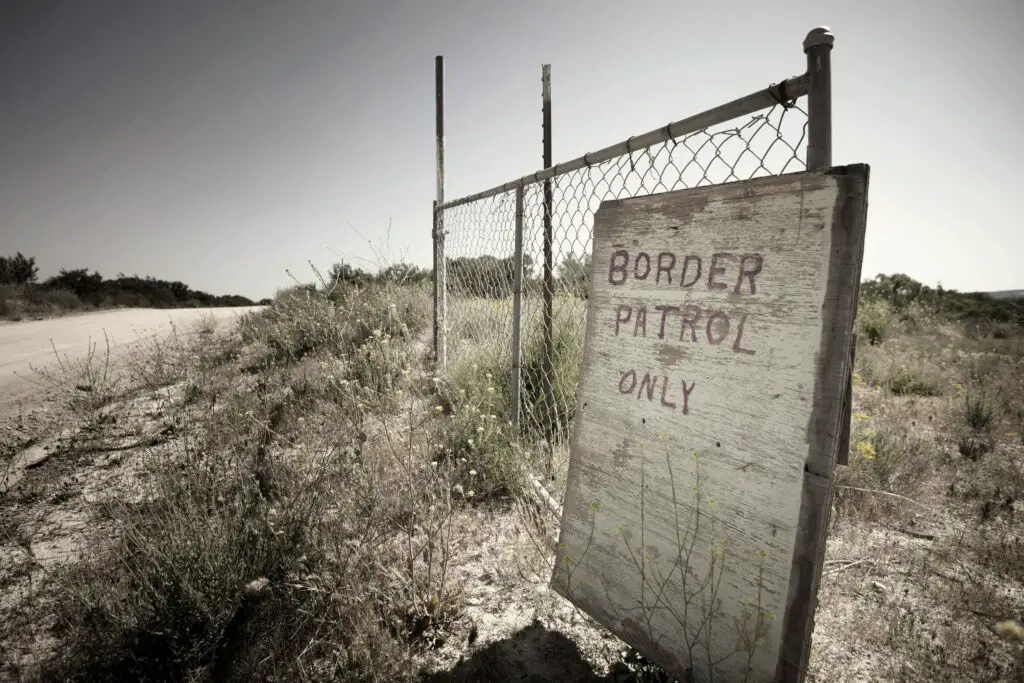Every day, thousands of people try to cross the United States-Mexico border. This equates to upwards of 2.1 million people crossing every year. For the U.S. border patrol, this statistic represents countless illegal crossings and public safety hazards. The Border Patrol must screen everyone to prevent illegal crossings at the border. Patrol officers are authorized to ask questions, stop, and even detain individuals to investigate border-related issues. However, the general public often misunderstands the limits of their authority, much like with other law enforcement officers.
California Teacher Detained at Border Station
With the popularization of social media, more videos involving border patrol disputes have surfaced. In this video, an officer stops a woman at a border patrol station and presumably asks her a few questions.
The woman exclaims that no one has ever asked about her citizenship at a border stop. The patrol officer continues to ask questions, but she declines to answer. Later in the video, the officer informs her that they will detain her until they can confirm her citizenship status.
Is this a normal situation? Can you refuse to answer U.S. border patrol questions?
When Can the U.S. Border Patrol Stop You?

As federal agents, border patrol must follow fairly strict rules and guidelines. Unlike police officers, Border Patrol agents have jurisdiction limited to issues regarding citizenship status and border safety. There are a few instances in which the U.S. border patrol may stop you or interact with you:
- On private land: If you live on private land within 25 miles of a border, patrol officers may enter your land without a warrant. If officers use this allowance, they cannot enter buildings on the land without a warrant, and they cannot cause unnecessary damage to the property.
- Driving near borders: some borders have “roving patrols” that take the form of envoys driving near border zones. Like regular officers, roving border patrol officers can only pull over a vehicle if they have “reasonable suspicion.” Reasonable suspicion is a legal concept that prevents random searches and seizures under the Fourth Amendment.
- At checkpoints: If you cross through a checkpoint, U.S. Border Patrol officers can stop vehicles at will. During the stop, they can ask questions and visually inspect the vehicle from the outside. Compared to national borders, checkpoint officers cannot hold you for an extended period without cause.
- At borders: Borders officers can also stop your vehicle for visual inspections or questioning. If you refuse to answer questions, officers can detain you and deny your entry past the border.
Is it Legal to Remain Silent at a Border Checkpoint?

Many people feel intimidated by U.S. Border Patrol officers due to their status. When the pressure mounts at a checkpoint or border, individuals often feel compelled to answer whatever questions officers ask. Despite this pressure, you still retain your constitutional rights at border checkpoints.
When asked questions by a border agent, you have the right to remain silent. Anything you say at a border checkpoint can work against you in immigration court, so remaining silent may be your best option. Likewise, you can refuse if an agent requests to search you or your vehicle. U.S. border patrol agents can only search if there is probable cause or a warrant for the situation.
At the same time, you may need to disclose certain information to officers. For instance, if you are a licensed immigrant, you typically must have your documents ready for inspection. Refusing to produce documents in those cases may lead to detention or arrest. Additionally, some states have “state your name” laws that require you to provide a license or at least give your name if border officers ask questions.
Was the Woman in the Video Legally Detained?
According to legal professional Ugo Lord, the woman in the video was legally detained.
In the United States, everyone has a Fifth Amendment right to remain silent if they feel they will incriminate themselves. In the video, the woman practiced this right, which is fully within her legal boundaries.
U.S. Border Patrol officers have a job to do. Asking questions is one of the few ways they can confirm that someone is legally passing through a border. Thus, officers can pull people over, ask questions, and even detain individuals who fail to comply. This detainment period gives officers more time to investigate an individual’s citizenship status using other methods. So, while the officers legally detained the woman, she had the right to remain silent when asked questions.

